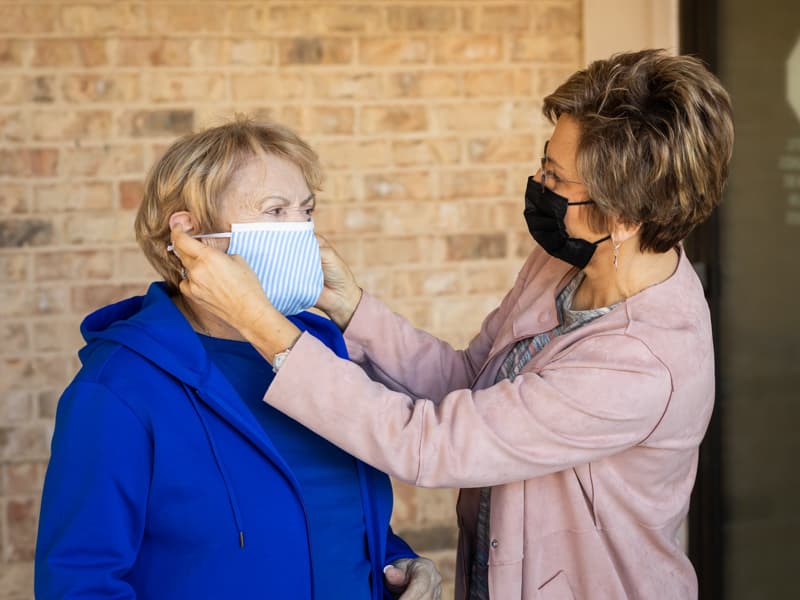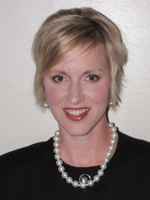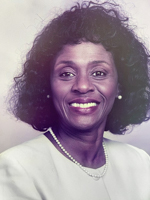New dementia caregiver course meets growing need

Her mother had convinced herself someone was in the attic, Darlene Bryant said.
Then the bugs came – bugs that were really flakes of parsley or specks of pepper in her food.
“She didn’t recognize her house as her home anymore,” Bryant said. “It became a scary place.”
Bonnie Acey, 80, had dementia. Once Bryant and her siblings had this confirmed, they teamed up to care of the woman who had, for so many years, taken care of them.
Even as they struggled to understand exactly how to do that, Bryant discovered a new source of help and information: Caregiver University at the University of Mississippi Medical Center.
“It teaches you how to learn to live with your loved one in their world, because my mom lives in a different world than I do,” said Bryant, a Brandon resident and former Medical Center nurse now working as a claims management administrator at UMMC. “Even when I’m standing right next to her, it’s different.
“Their reality is their reality, and you have to accept it. My mother would do something I had never seen before, it was disturbing to me. But Caregiver University gives you a list of resources and support groups, and the techniques to manage this.”
Caregiver University, provided by The Memory Impairment and Neurodegenerative Dementia (MIND) Center, presented its first series of courses over a 10-day period in October.
About a month earlier, on the first day applications were entertained, nine people had submitted theirs within the first 36 hours. Only 10 spots were available then, said Kathy Van Cleave, director of education and outreach for the MIND Center.

“It’s something people have been looking for,” Van Cleave said. “Many of these caregivers want to help their loved one age in place and try to avoid a long-term care setting.
“There are places like that providing excellent care, but not everyone has access or the resources for that. I believe Caregiver University will be an excellent support service, not only for the community, but also for the entire state of Mississippi.”
With nine live, virtual classes and another nine recorded in on-demand videos, the education program is open, for free, to anyone who is providing, or expects to provide in the near future, in-home care to a loved one with dementia, an overall term for a range of particular medical conditions, including Alzheimer’s disease.
In the case of Bryant’s mom, the first sign of dementia showed up more than two years ago. “Because of her paranoia, she was terrified to stay by herself as the sun went down,” Bryant said.
Bryant and her three siblings began staying with her at night so she could sleep. Eventually, someone had to be with her all the time. Now, during the week, she stays in the Memory Care Unit at The Blake at Flowood. On weekends, Bryant or one of her siblings will bring her home with them.
“When I retire at the end of this year, she will come live with me and my husband,” Bryant said. “We plan to travel and make memories while she still can.”
Even before she found Caregiver University, Bryant was trying to learn as much about dementia as she could. “I had worked as a nurse a long time,” she said, “but Alzheimer’s dementia and the other types of dementia became more prevalent at the end of my nursing career. So I didn’t know a lot about it.”
Very quickly, though, she learned this: “When people with dementia can no longer speak for themselves, their behavior is their communication tool. It’s the message my mother sends to try to tell me something,” Bryant said.
“She is still able to communicate, but she can’t always find the right word. It’s such a fine line you have to walk with her, and I imagine that’s so with anyone who has dementia. Because sometimes you say something you wish you hadn’t said.
“You should not say, ‘Don’t you remember so-and-so?’ Because, no, they don’t remember. But this disease affects everyone differently, and Caregiver University helps you understand what’s going on with the loved one. They give you the techniques to manage it, and offer you support.”
The next session of Caregiver University is scheduled for February 15-26, 2021. For its October debut, the program enlightened its students about end-of-life decision-making, safety for seniors, advances in research, hygiene and personal care, brain health, healthy aging, and more.

“Knowledge is power – I know that’s a common saying, but this course helped my brother and I realize our goal of getting as much information as we can,” said Dr. Cynthia Armstrong of Jackson, a retired educator who teams up with her sibling and a professional service to care for a mom diagnosed with dementia in 2017.
“We learned how to communicate with her. We learned strategies for legal planning; information about nutrition, The MIND Center, and free community and government resources. It was very organized. The environment was non-threatening; we felt at-ease to talk.
“A lot of the presenters either have had personal experience with dementia in their families or have had to deal with it in other ways.”
Many presenters work at UMMC, including Van Cleave; Dr. Thomas Mosley, professor of geriatric medicine and the Robbie and Dudley Hughes Distinguished MIND Center Chair; Dr. Mark Meeks, professor of medicine and the director of the Division of Geriatrics and Gerontology; Dr. Gwen Windham, professor of geriatrics and gerontology; Dr. Kim Tarver, assistant professor of geriatrics and gerontology; Sue Ann Meng, a geriatrics social worker in the MIND Center; and others.
Faculty members drawn from the community outside the Medical Center represented such organizations or institutions as the Alzheimer's Association Mississippi Chapter, Alzheimer’s Mississippi, the School of Applied Sciences at the University of Mississippi, Itawamba Community College, and the Mississippi Gerontological Society.
There were no tests, but many opportunities for questions and discussions.
“There was also a common bond, because all of us in that group are in similar circumstances,” Armstrong said.
“Caregiver University came along and gave us insight, and what we learned we can now share with other people. It’s something God put in our lives, and then we can use it to help somebody else.
“I told my mom the other morning that she always gave, and now it’s our time to give back.”
To apply to attend Caregiver University, click here.


